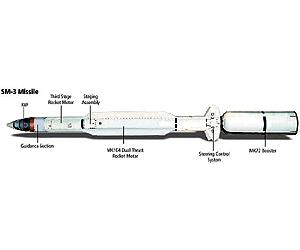International Policy
Datagate, Who is этот мистер Сноуден?
6 Jul 2013«Назовите лидера, который неукоснительно соблюдает Конституцию. Это Владимир Путин. Назовите лидера, который ведет свою страну безупречным международным курсом. Это Владимир Путин.
Даже в сложнейшей ситуации, в которую поставил Россию американо-интернетный предатель Эдвард Сноуден, господин Путин пробежал «между струйками», с честью уведя страну от сотрудничества с отщепенцем. 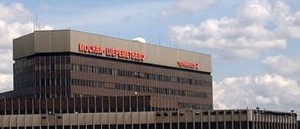
Слушая комментарии президента по поводу ситуации вокруг Сноудена, хочется воскликнуть по-ленински: «Учиться, учиться и еще раз учиться!». Говорю это без иронии — это комментарии мудрого политика, раздающего каждой из сестер по серьгам.
Вот как комментируется возможное предоставление Сноудену российского убежища: «Если он захочет остаться здесь, есть одно условие: он должен прекратить свою работу, направленную на то, чтобы наносить ущерб нашим американским партнерам, как это ни странно прозвучит из моих уст».
То есть Россия добровольно станет гарантом того, что компромат на спецслужбы США (самое сладкое, что от Сноудена хотелось услышать) никогда не увидит свет… »
Статья – Матвей Ганапольский – Московский Комсомолец № 26271 от 4 июля 2013 г.
“On July 1st Croatia become the 28th member of the European Union. The lights of the welcome party have yet to be switched off and the hangover of reality is already setting in. Joining the EU is not the solution to Zagreb’s daily problems.
What a difference from the 2004 enlargement! At that time 10 states joined the European Union not only to create one of the largest areas of democracy and rule of law in the world but also because Europe wished to be closer to Yalta’s post World War II scenario…
Article – Giuseppe D’Amato – Kyiv Post – July 3, 2013.
“Damascus is the “Stalingrad” of Russian diplomacy. After years of geopolitical withdrawal, Moscow has chosen Syria as a way to revive its image of power in the world. “Not one step back” is the Kremlin’s new strategy, as it was for the Red Army along the banks of the Volga river during World War II.
To be more convincing, the Kremlin has simultaneously flexed its muscles by supplying sophisticated weapons to Syria. The undeclared objective is to prevent the West from establishing a no-fly zone or a naval blockade of the regime of Syrian President Bashar Assad, as was done for Moammar Gadhafi’s Libya. The presence of Russian ships patrolling waters near the Russian naval base in the Syrian port of Tartus indicates that the Kremlin is serious… ”
Article – Giuseppe D’Amato The Moscow Times – June 5th, 2013.
Afghanistan, The Istanbul Process goes on.
26 Apr 2013 Almaty hosted the Third Ministerial Conference of the Istanbul Process on Afghanistan with the participation of Kazakhstan’s President Nursultan Nazarbayev. More than 50 delegations, led by the foreign ministers of the participating states, supporting countries and heads of international organizations, attended the Almaty Conference. The participants fully supported the plans of the regional countries to cooperate on Afghanistan and confirmed their willingness to purposefully expand and deepen regional cooperation based on the principles of friendship, respect and mutual benefit. 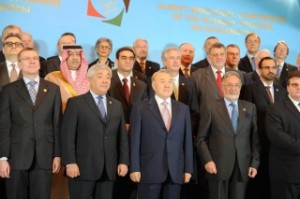
In his welcoming remarks, President Nursultan Nazarbayev highlighted the importance of regional cooperation and outlined Kazakhstan’s role in the international community’s plans on Afghanistan. He noted that Kazakhstan had been providing political, economic and humanitarian assistance to Afghanistan starting from the 1990s directly or through international efforts.
Following the Conference, the participants adopted a final declaration, in which the parties confirmed their intention to continue to support Afghanistan’s engagement in the economic and political life of the region. The Conference participants highlighted the importance of these measures in the context of the withdrawal of International Security Assistance Forces from Afghanistan. They also adopted specific action plans for each of the six packages of the confidence-building measures of the Istanbul Process.
The third Ministerial meeting of the foreign ministers of the Istanbul Process has allowed the regional countries to harmonize their approaches on conducting a policy dialogue with Afghanistan and identify concrete measures of cooperation in the fields of education, economy, fight against terrorism, drug trafficking, and natural disasters, as well as the development of regional infrastructure.
The supporting countries and international organisations expressed full support for the intentions of the regional states and identified forms and conditions of their participation in the development of cooperation measures on behalf of Afghanistan. The sides emphasized their willingness to work closely in the context of international and regional organisations such as the UN, SCO, CICA, OSCE, CSTO, ECO and other.
A number of side events took place during the Almaty Conference. These included a presentation by the mayor of Almaty Akhmetzhan Yessimov on the opportunity to turn the city into a regional hub of multilateral diplomacy; an expert level seminar of the relevant bodies of the member countries of the Istanbul Process on Kazakhstan’s potential as a transit and transport corridor; an exhibition of Kazakhstan’s goods and products for export to Afghanistan.
Kazakhstan remains a reliable foreign partner of Afghanistan. Astana is committed to the development of political contacts with Kabul both in bilateral and multilateral formats.
In accordance with the adopted Declaration, the next Conference of the foreign ministers of the Istanbul Process on Afghanistan will be held in China in 2014. In this regard, Kazakhstan expresses its gratitude to the Chinese side not only for their willingness to host the fourth meeting, but also for full support and contribution to the development of the Istanbul Process.
Statement from MFA Kazakhstan
Cipro, un bel grattacapo per la Russia.
24 Mar 2013 I russi sono letteralmente furibondi: non sono stati consultati dagli europei, quando Bruxelles ha proposto a Nicosia il prelievo forzoso dai conti correnti bancari.
Eppure Mosca credeva di essersi guadagnata la fiducia internazionale, avendo già prestato a Cipro nel 2011 ben 2,5 miliardi di dollari, mentre i “partner” continentali continuavano ad osservare la situazione creatasi sull’isola del Mediterraneo senza alzare un dito. 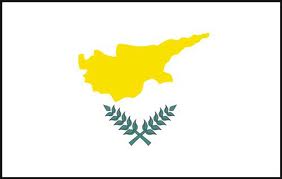
La delusione è tanto più grande, poiché tutti i meccanismi di consultazione con l’Ue si sono dimostrati inadeguati. Il gruppo di Paesi, che continua a vedere nell’ex superpotenza comunista un pericolo, ha imposto la scelta del prelievo forzoso proprio per colpire Mosca.
In queste convulse ore le cifre sono state confermate anche dalla Banca centrale di Cipro: su 68 miliardi nei forzieri, una trentina appartengono a russi. Il che potrebbe significare una perdita spaventosa. Il buco da coprire in fretta a Nicosia si aggira sui 5,8.
Persino società, controllate dallo Stato federale, hanno i conti bloccati sull’isola mediterranea, ha ammesso il premier Dmitrij Medvedev, che ha ipotizzato la creazione in qualche regione periferica dell’immenso gigante slavo di speciali aree off-shore.
“Molliamogli Kaliningrad-Koenigsberg (con la Prussia orientale) e prendiamoci Cipro”, scriveva ironicamente in un editoriale il popolare Moskovskij Komsomolets.
Non c’è magnate famoso o compagnia importante che non abbia una sede in quella che un tempo veniva considerata l’isola del tesoro, dove i soldi venivano messi al sicuro lontani dalle grinfie di burocrati corrotti. Adesso toccherà trovare ospitalità da qualche altra parte. La favola è finita!
Cipro è da anni ai primi posti tra i Paesi investitori diretti in Russia. In realtà, questi sono capitali di ritorno che, in pratica, godono nella Patria ritrovata di una giurisdizione diversa da quella nazionale. Ecco un’altra ragione della creazione di una piazza finanziaria del genere.
Gli europei hanno sfruttato l’occasione per rimettere ordine nello spazio dell’euro. Si sono levati un bel sasso dalle scarpe, considerando alcune chiacchierate operazioni messe a segno nell’ultimo decennio dagli spericolati oligarchi moscoviti.
Il rischio è, però, che questa operazione sia un boomerang. All’apertura delle banche cipriote i soldi dei russi (quelli non tassati) prenderanno certamente il volo. Il buco cipriota potrebbe allora trasformarsi in una voragine quattro volte maggiore. Il governo federale ha minacciato anche di cambiare la composizione delle proprie riserve valutarie, riducendo le quote dell’euro. Il che significherebbe giorni difficili per la moneta unica.
Dal 26 marzo a Durban è previsto il summit annuale dei Paesi emergenti del Brics (Brasile, Russia, India, Cina e Sud Africa). I russi, che hanno il loro tallone d’Achille dalla dipendenza eccessiva dal prezzo del petrolio, probabilmente prepareranno qualche sorpresa. Allontanarsi in un sol colpo da euro e dollaro? Difficile. Spingeranno intanto per il rafforzamento del cinese yuan, come valuta di riferimento. Il summit al Cremlino con la nuova dirigenza di Pechino è giunto proprio a puntino.
18 Mar: New SIPRI data on arms transfers – China replaces UK as world’s fifth largest arms exporter
China has become the fifth largest exporter of major conventional arms worldwide, according to new data on international arms transfers published by SIPRI. This is the first time China has been in the top five arms exporters since the end of the cold war. Overall, the volume of international transfers of major conventional weapons grew by 17 per cent between 2003–2007 and 2008–12.
The five largest suppliers of major conventional weapons during the five-year period 2008–12 were the United States (30 per cent of global arms exports), Russia (26 per cent), Germany (7 per cent), France (6 per cent) and China (5 per cent). This is the first time that the UK has not been in the top five since at least 1950, the earliest year covered by SIPRI data. China’s displacement of the UK is the first change in the composition of the top five exporters in 20 years.
The volume of Chinese exports of major conventional weapons rose by 162 per cent between 2003–2007 and 2008–2012, and its share of the volume of international arms exports increased from 2 to 5 per cent.
‘China’s rise has been driven primarily by large-scale arms acquisitions by Pakistan,’ said Dr Paul Holtom, Director of the SIPRI Arms Transfers Programme. ‘However, a number of recent deals indicate that China is establishing itself as a significant arms supplier to a growing number of important recipient states.’
Asian imports strengthen naval capabilities
In the period 2008–12 Asia and Oceania accounted for almost half (47 per cent) of global imports of major conventional weapons. The top five importers of major conventional weapons worldwide—India (12 per cent of global imports), China (6 per cent), Pakistan (5 per cent), South Korea (5 per cent), and Singapore (4 per cent)—were all in Asia.
Several countries in Asia and Oceania have in recent years ordered or announced plans to acquire long-range strike and support systems that would make them capable of projecting power far beyond their national borders. Last year notably saw the delivery of a nuclear-powered submarine from Russia to India and the commissioning of China’s first aircraft carrier, Liaoning.
Other regional players are seeking to establish or strengthen submarine fleets, including several South East Asian countries and Australia, which is also acquiring large surface warships and combat aircraft. These developments come at a time of heightening tensions over territorial disputes in the East and South China seas.
Austerity bites in the European arms market
Deliveries to European countries fell by 20 per cent between 2003–2007 and 2008–12. European states seem eager to abandon or reduce a range of arms import plans. During 2012 Italy and the Netherlands reduced their orders for F-35 combat aircraft from the USA, while Bulgaria, Croatia and Romania dropped plans for newly produced combat aircraft in favour of second-hand options.
Many European states are also seeking to export newly acquired combat aircraft that they can no longer afford to maintain. For example, Portugal is seeking buyers for its new fleet of F-16s and Spain is seeking to sell newly purchased Eurofighter Typhoons.
‘With the financial crisis in Europe, the withdrawal from Iraq and the drawdown in Afghanistan, we can expect to see Europe trying to export a considerable volume of surplus military equipment,’ said Mark Bromley, Senior Researcher with the SIPRI Arms Transfers Programme.
Other notable developments
- Russia accounted for 71 per cent of exports of major weapons to Syria in 2008–12 and continued to deliver arms and ammunition in 2012.
- The Arab states of the Gulf accounted for 7 per cent of world arms imports in 2008–2012. Missile defence systems were an important element in their latest arms acquisitions, with orders placed in 2011–12 for Patriot PAC-3 and THAAD systems from the USA.
- Deliveries of weapons system to Venezuela as part of its ongoing rearmament programme continued in 2012. Russia accounted for 66 per cent of transfers to Venezuela, followed by Spain (12 per cent) and China (12 per cent).
- Imports by North African states increased by 350 per cent between 2003–2007 and 2008–12, which was almost entirely responsible for a doubling (by 104 per cent) in imports by Africa as a whole.
- Sub-Saharan imports increased by just 5 per cent. Most countries in sub-Saharan Africa imported only small numbers of major weapons, but many of these have been used in internal conflicts or in interventions in conflicts in neighbouring states, most recently in Mali.
- Greece’s arms imports fell by 61 per cent between 2003–2007 and 2008–12, pushing it from the number 4 importer to number 15. In 2006–10 Greece was the top recipient of German arms exports and the third largest recipient of French arms exports.
Anti-missile defence, US change of plans. No interceptors for Europe. Russia and Poland not happy.
18 Mar 2013 To fund boosting its west coast defences, the US is to scrap plans to place SM-3 IIB missile in Europe and deploy them in Alaska.
The long-range interceptors were to have been the final phase of a program that Russia contends aims to counter its own missiles. Washington says the system is meant to stop missiles from Iran and North Korea.
U.S. Defence Secretary Chuck Hagel, however, stressed that plans are on track to deploy shorter-range missiles to Poland and Romania within the next five years.
“We feel no euphoria in connection with what was announced by the U.S. defence secretary, and we see no grounds for correcting our position”, said Russian Deputy Foreign Minister Sergei Ryabkov.
“This is not a concession to Russia and we do not see it as such,” he added. “We will continue a dialogue and seek the signing of legally binding agreements that all elements of the U.S. missile-defence system are not aimed at Russian strategic nuclear forces.”
In recent past U.S. defence and political officials stated that shorter-range interceptors would still be based in Poland as part of NATO’s missile defence system in Europe.
The Obama administration has planned to put medium-range interceptors in Redzikowo, in northern Poland, starting in 2018, as part of the NATO system.
The U.S. missile defence plans involve building up the system in Europe in four stages, with shorter- and medium-range interceptors to be deployed in the first three phases, and longer-range interceptors due in the fourth phase.
However, the fourth stage has not yet been funded by Congress, and there are indications the technology is not ready. At the same time they have been an irritant in relations between the U.S. and Russia.
Phase one of the system has already been deployed, with anti-missile interceptors on a ship in the Mediterranean Sea. Phase two is to include interceptors in Romania, then interceptors in Poland will come as part of phase three.
The U.S. missile defence system at Romania’s Deveselu military base is not affected either and will become operational in 2015 as planned.
Poland’s main aim in having the U.S. interceptors has been to have an American military presence on Polish soil in the belief it will increase the country’s security, particularly given fears that Russia could one day try to dominate the region again.
The US will now add 14 interceptors against incoming missile threats, to the 30 already in place in California and Alaska by 2017.
Sources: PAP, Reuters, AP, AFP
Early elections should be held as soon as possible in the Czech Republic, president-elect Miloš Zeman told Czech Television. Zeman said the center-right government is reliant on LIDEM, an offshoot of the Public Affairs (VV) Party which was never elected. PM Petr Nečas responded that the government is responsible to Parliament, not the president, and will continue as long as it holds a majority in the lower house. Zeman, a leftist candidate, won the Czech presidential elections with 54.8 percent Jan. 26, receiving half a million votes more than his conservative rival Karel Schwarzenberg. The voter turnout was 59.11 percent. 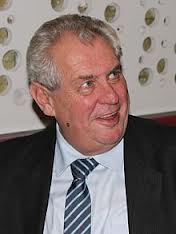
Czech subsidy recipients drawing from European Union funds have so far received 407.9 billion Kč for the program period 2007-2013, which is equal to 52 percent of the total amount the Czech Republic can draw in this timeframe, the Local Development Ministry announced today. In the last quarter of 2012, successful subsidy recipients received 38.5 billion Kč worth of European subsidies. Of the total amount of subsidies paid out to recipients by the Czech Republic, the Czech Finance Ministry has asked the European Commission (EC) for the payment of 233.9 billion Kč, or 29.8 percent of the total allocated amount.
The German government should not invite Zeman to Berlin due to his anti-German campaign, daily Die Welt claimed in an editorial. Zeman’s comments regarding the 1945 deportation of some 2 million Sudeten Germans from Czechoslovakia points to a language of hate that should not be tolerated in European politics, the daily wrote. Another German newspaper, Südwest Presse, referred to the president-elect as a “leftist dinosaur” who sowed fear in the minds of “little people” to get himself elected. “The Sudeten German topic is unlikely to have any political relevance for Zeman’s political practice. It just served him as a way to get to the Prague Castle,” the daily wrote.
Article, The Prague Post, Jan 28th, 2013.
In electoral campaign
Miloš Zeman
Age: 68
Party: SPOZ
Presidential amnesties: Would never declare one, even at the end of his presidency
Same-sex adoption: Would recommend it if the child’s life improved as a result
Church restitution: Thinks people should decide on the issue in a referendum
Nuclear energy: Favors atomic power and is for expanding Temelín
Right to veto: Would use this right if he felt the piece of legislation was bad
Communists in government: Would appoint them to respect the voters’ will
– –
“The enemy is the anti-civilization spreading from North Africa to Indonesia,” Zeman told a conference on European values. “Two billion people live in it, and it is financed partly from oil sales and partly from drug sales.” He went on to liken Muslims who believe in the Koran to Nazi supremacists.
While Zeman and Schwarzenberg have the same goal for Europe, their views on the rest of the world differ significantly. The former premier would focus more on growing links with Moscow (SPOZ is accused of having nefarious connections to several Russian businesses), while the latter would align himself more with the United States, having shown concern over the resurgent influence of President Vladimir Putin’s Russia.
Jonathan Crane – Article – The Prague Post
L’Africa settentrionale rischia di trasformarsi in un nuovo Afghanistan? Oppure siamo di fronte ad un’ondata di colonialismo europeo sotto mentite spoglie, quelle del XXI secolo? Dopo la morte del leader libico Gheddafi l’Africa è diventata più insicura? “La crisi degli ostaggi in Algeria – chiarisce subito Aleksandr Tkachenko, vice direttore del Centro studi sull’Africa settentrionale dell’Accademia russa delle Scienze, – è certamente collegata con la guerra in Mali”. 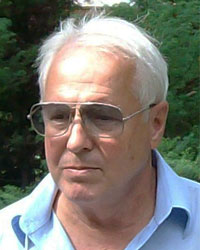
La situazione sul campo è assai complicata. “Da più di un anno in questa macroregione (Mali, Niger, Algeria e Paesi limitrofi) si osservano iniziative di forze separatiste, chiamiamole così, contro i governi centrali. Le motivazioni di carattere socio-economico, mi riferisco all’estrema indigenza in cui vive la popolazione, fanno da detonatore alla protesta. Non dimentichiamo che l’Africa è un continente povero”.
Da chi sono composte queste forze, come le ha chiamate lei, separatiste? “Vi è stata l’unione tra membri dell’opposizione anti-governativa, esponenti regionali, unità armate e gruppi vicini ad AlQaeda. Questa realtà, creatasi adesso, è una minaccia per tutti i Paesi dell’Africa occidentale”.
Perché quindi gli eventi algerini sono collegati con quelli del Mali? “Guardiamo alle richieste fatte dagli assalitori dei pozzi petroliferi. Primo, fermare l’intervento francese in Mali. Secondo, liberare alcune persone detenute a Guantanamo. Attenzione. Ricordiamoci la storia di Bin Laden. E cerchiamo di comprendere dove sia la frontiera tra protesta dell’opposizione ed estremismo e quando essa viene superata”.
Siamo pertanto di fronte ad un nuovo Afghanistan? “Non ora. Ma certi elementi lo fanno tornare in mente”.
Quale futuro per questa macroregione? “Le forze anti-governative potranno rafforzarsi nel lungo periodo. E’ un’area geografica difficile. Non sarà facile calmare le acque in fretta”.
Non è che gli occidentali stiano sfruttando la situazione per imporre un qualche nuovo tipo di colonialismo? “La questione è assai complessa e non si può riassumere in una battuta. Diciamo, invece, che nell’ultimo decennio le guerre civili in questa area del mondo sono di molto aumentate. Il rischio di un frazionamento del continente è palese. Pensiamo al Sud Sudan che si è separato dal Sudan. In precedenza è accaduta la stessa cosa tra Eritrea ed Etiopia. Nel Mali del Nord è stato appena proclamato dagli insorti un nuovo Stato. I governi centrali non riescono a risolvere i grandi problemi che attanagliano i loro deboli Paesi. La corruzione poi fa il resto. L’unica soluzione, in molti casi, è la separazione tra le regioni”.
Come è possibile che queste forze anti-governative siano armate fino ai denti? Queste armi provengono dalla Libia? “Tutti sanno che la Libia era un Paese ricco e ne aveva tante”.
Come mai questi gruppi sono così numerosi? “Gheddafi aveva al suo servizio tanti mercenari, originari dell’Africa nera. Adesso questi sono tornati a casa o in Paesi vicini e cercano di farsi una posizione con le armi in mano”.
Queste forze separatiste sono un pericolo per le rotte del petrolio e del gas? “Sì. Possono creare grattacapi in Algeria, tra i primi dieci produttori mondiali di materie prime, e provocare conseguenze negative internazionali”.
La Russia pare allineata su posizioni comuni all’Occidente. “Mosca cerca di fermare i conflitti con la diplomazia. All’Africa serve la stabilità”.
Due sono i favoriti della prima tornata elettorale: l’economista 68enne Milos Zeman ed il 62enne esperto in statistica Jan Fischer.
Con loro altri sette sono i candidati in lizza. Le previsioni della vigilia danno per scontato che nessuno riuscirà ad ottenere più del 50% dei voti per essere eletto già ora presidente. Si tornerà così alle urne il 25-26 gennaio prossimo per il ballottaggio. 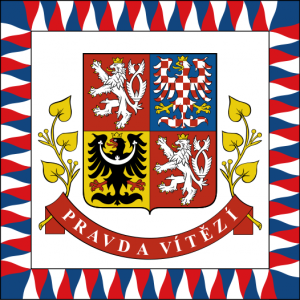
Dopo due capi dello Stato eletti dal Parlamento, Vaclav Havel e Vaclav Klaus, la Repubblica ceca ha deciso ora di cambiare sistema elettorale per evitare le passate contrapposizioni.
Sia Zeman che Fischer, ambedue ex premier, hanno posizioni più morbide con Bruxelles a differenza dell’euroscettico conservatore presidente uscente Klaus, il cui mandato scade il prossimo 7 marzo.
Il primo è tornato alla politica dopo anni di assenza, mentre il secondo si è segnalato per la buona conduzione del semestre di presidenza ceca dell’Unione europea.
Secondo la Costituzione in vigore il capo dello Stato ha il potere di scegliere il primo ministro sulla base delle elezioni legislative e di selezionare i membri della direzione della Banca centrale. Con l’approvazione della Camera alta del Parlamento il presidente nomina i giudici della Corte Costituzionale.
Welcome
We are a group of long experienced European journalists and intellectuals interested in international politics and culture. We would like to exchange our opinion on new Europe and Russia.
Categories
- Breaking News (11)
- CIS (129)
- Climate (2)
- Energy&Economy (115)
- EU Eastern Dimension (85)
- Euro 2012 – Sochi 2014 – World Cup 2018, Sport (43)
- Euro-Integration (135)
- History Culture (198)
- International Policy (261)
- Military (74)
- Interviews (18)
- Italy – Italia – Suisse (47)
- Odd Enough (10)
- Poland and Baltic States (126)
- Religion (31)
- Russia (421)
- Survey (4)
- Turning points (4)
- Ukraine (176)
- Российские страницы (113)
Archives
- November 2020
- October 2020
- September 2020
- August 2020
- July 2020
- May 2020
- April 2020
- March 2020
- January 2020
- December 2019
- November 2019
- October 2019
- September 2019
- August 2019
- July 2019
- June 2019
- May 2019
- April 2019
- March 2019
- February 2019
- December 2018
- November 2018
- October 2018
- September 2018
- August 2018
- July 2018
- June 2018
- May 2018
- April 2018
- March 2018
- February 2018
- January 2018
- December 2017
- November 2017
- October 2017
- September 2017
- August 2017
- July 2017
- May 2017
- March 2017
- January 2017
- December 2016
- November 2016
- October 2016
- September 2016
- July 2016
- June 2016
- May 2016
- April 2016
- February 2016
- January 2016
- November 2015
- October 2015
- September 2015
- June 2015
- April 2015
- March 2015
- February 2015
- January 2015
- December 2014
- November 2014
- October 2014
- September 2014
- August 2014
- July 2014
- June 2014
- May 2014
- April 2014
- March 2014
- February 2014
- January 2014
- December 2013
- November 2013
- October 2013
- September 2013
- August 2013
- July 2013
- June 2013
- May 2013
- April 2013
- March 2013
- February 2013
- January 2013
- December 2012
- November 2012
- October 2012
- September 2012
- August 2012
- July 2012
- June 2012
- May 2012
- April 2012
- March 2012
- February 2012
- January 2012
- December 2011
- November 2011
- October 2011
- September 2011
- August 2011
- July 2011
- June 2011
- May 2011
- April 2011
- March 2011
- February 2011
- January 2011
- December 2010
- November 2010
- October 2010
- September 2010
- August 2010
- July 2010
- June 2010
- May 2010
- April 2010
- March 2010
- February 2010
- January 2010
- December 2009
- November 2009
- October 2009
- September 2009
- August 2009
Our books





